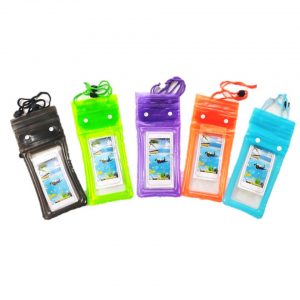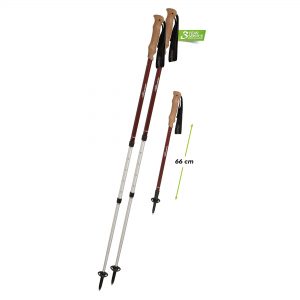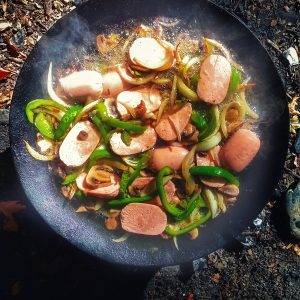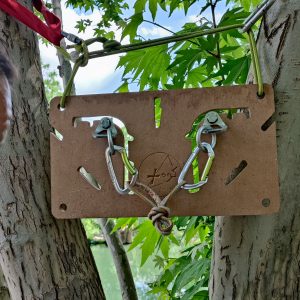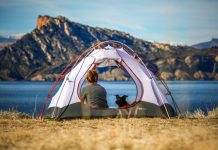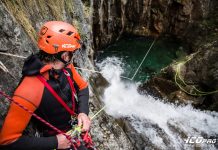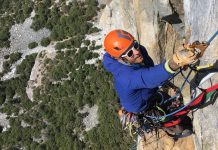[ad_1]
The Ogre –
Read the dramatic story of the first ascent
Towards the end of 2017, legendary British mountaineer and UIAA Management Committee member Doug Scott released The Ogre, a two-part biography documenting his and Chris Bonington’s dramatic first ascent and fight for survival on the Ogre in Pakistan’s Karakoram in 1977.
Predating satellite phone communication, when an accident which resulted in Scott suffering two broken legs and Bonington smashing ribs turned their climb into a desperate fight for life, the isolated pair had only the bravery of their team members, Mo Anthoine and Clive Rowland, to count on. When word reached the national press, the selfless roles played by Anthoine and Rowland in shepherding Scott and Bonington off the mountain had been essentially written out of the story to focus on the two already-famous mountaineers – household names thanks to their exploits on Everest.
Using newly discovered diaries, letters, audiotapes and film footage created by Anthoine, and forty years after the climb, in The Ogre Doug Scott sets the record straight for the first time.
 Speaking about the book’s release, Scott said, ‘The Ogre is the most difficult high mountain in the world to climb and when both Chis and I were incapacitated on the descent, the eight-day journey to reach Base Camp was only made possible by the selfless support of Clive and Mo. Marking forty years since our near-fatal climb, The Ogre will bring the whole story to light’.
Speaking about the book’s release, Scott said, ‘The Ogre is the most difficult high mountain in the world to climb and when both Chis and I were incapacitated on the descent, the eight-day journey to reach Base Camp was only made possible by the selfless support of Clive and Mo. Marking forty years since our near-fatal climb, The Ogre will bring the whole story to light’.
Subsequently, after several more trips to Pakistan, the combination of being rescued by the local people from the Ogre and a porter falling into the Braldu River and disappearing, encouraged Scott to do something about the fifty per cent child mortality rate in the village of Askole, the last village before K2 and the Ogre. One of the benefits of the Ogre expedition was that it raised Scott’s profile enabling him to raise funds to facilitate such projects to provide clean water for Askole residents, reduce child mortality and, within just a few years, far more children were living beyond the age of five.
The success of the project in Askole gave him the confidence to respond positively to requests in Nepal, where he had done most of his climbing, and Community Action Nepal – a showcased project on the UIAA Mountain Protection Award platform – is the result. Currently there are fifty plus projects so this accident produced some positive and long-lasting outcomes.
The Ogre is available to purchase from Vertebrate Publishing (www.v-publishing.co.uk).
The UIAA have two copies of the book to give away to newsletter subscribers. Details of the competition will be available in February’s newsletter. If you are not subscribed please click here.
Below is an extract from The Ogre, courtesy of Vertebrate Publishing.
The Epic Descent
A miserable cold wind blew in as I left the summit shuffling down an arête of granular snow to fix a sling around a block of rock for the first abseil. Hurrying, with darkness imminent, I forced my cold and aching body down the frozen double ropes in a series of jerks and hops, all the time moving left towards the crack I had climbed some three hours before. The rope just reached the crack where I tried to clip a couple of pegs left in situ – they were just out of reach so I stepped my feet up to hold myself in better balance. Without looking I stepped on to a veneer of water ice that had formed from melting snow in the evening cold. In that careless moment I lost control.
My feet slid across the ice, off into the air and away I went, galloping across the rocks, striding faster and faster, trying to regain control, to arrest the swing but then spinning, rolling wildly round and round and away into the void, clutching the ends of the rope for all I was worth. I twisted and turned in an effort to face squarely, great cracked walls of rock streaked with snow looming up fast – on and on, zooming in, with my boots in front of me like a pair of buffers – no stopping it now.
Splat went my legs, arms and body against the rock with the clatter of gear. Down went my specs and ice axe. I came to a stop, bouncing on the end of the rope, every bone shaken. The surge of blood pumping around my head slowed to a trickle and all was quiet after what seemed like a lifetime of total involvement – time had been in suspension as it does when it is all happening. Luckily I was still conscious for there was no knot on the end of the double ropes. I had come to a halt, hanging free, so I stretched out a toe to push against the rock and swing myself on to a ledge; there was something badly wrong with my left leg as pain shot up it into the groin. I then pushed with my right leg – there was definitely something seriously wrong there as it crackled and gave a sickly sensation of grating bone and unnatural movement.
With the left foot and reaching over with my hands, I eventually manoeuvred myself on to a ledge, hammered in a peg, slotted in two wire chocks and tied myself off. Now the weight was off the ropes I yelled up to Chris to come on down. My initial reaction had been fairly rational as there was much to do and occupy my mind, but now, in waiting for Chris, I realised I had messed up and that we were unlikely to reach the snow cave, sleeping bags and a brew that night. Clive later wrote that down at the cave:
At 8 p.m. I was lying in my sleeping bag and it was almost dark. ‘I’ll just go out for a final look to see how they are doing, before I tuck in,’ Mo announced. He was standing in the cave entrance, when ‘Oh God! No!
 He’s gone!’ he screamed.
‘What? Who’s gone?’ I yelled. I didn’t want to know, fearing the worst.
Joining Mo at the entrance, we could just pick out two figures in the gloom, about 140 feet apart.
‘It’s Doug,’ Mo replied.
‘What’s he doing down there?’ I asked Mo.
Mo said, ‘He was just reaching the west end of the terrace to where he would abseil from, when I don’t know what or why it happened, but he just sort of fell off. I can’t understand it, that was just a walk.’
He’s gone!’ he screamed.
‘What? Who’s gone?’ I yelled. I didn’t want to know, fearing the worst.
Joining Mo at the entrance, we could just pick out two figures in the gloom, about 140 feet apart.
‘It’s Doug,’ Mo replied.
‘What’s he doing down there?’ I asked Mo.
Mo said, ‘He was just reaching the west end of the terrace to where he would abseil from, when I don’t know what or why it happened, but he just sort of fell off. I can’t understand it, that was just a walk.’
Mo later said: ‘He suddenly shot off into space and I remember my knees buckled, Clive sank down saying “Oh God, no” and then there was silence. Then I heard a few moans and groans and confused shouting from Chris, then the very clear voice saying “I think I have broken my legs”. I tried shouting up but got no reply … they were too engrossed … so back into the snow cave … no climbing gear … a bit bloody helpless … a bloody awful night … thought of broken femurs … staring at the roof of the cave, cursing inwardly.’
Chris abseiled down and, as he appeared above my head, I told him I thought I had broken both my legs; he told me not to panic, that I wasn’t going to die! ‘We’ll get you down somehow – whatever happens.’ I thanked him for his encouragement and told him that I certainly had no intention of dying. He pulled the ropes down, fixed the next abseil and disappeared into the gloom below. As I watched Chris disappear, down the double ropes now pencil thin with his weight, I had more time to take stock of the situation and knew there would be new rules for winning.
I never doubted I would get off this mountain, not with people like Chris, Mo and Clive to help, but exactly how it would work out I had no idea. I knew I was now in a very difficult position so it may seem a bit odd that I experienced feelings of exhilaration at all the uncertainty I had created. I was impatient to get moving, not only because I was beginning to freeze but also to get to grips with this new situation and try to solve it. The ropes came slack and I slid down them with my back against the rock to join Chris on a snow patch in the middle of the tower. It was a relief to know that at least I could abseil.
Chris had hacked out most of a long ledge in the snow down to the ice. I made the mistake of stepping on to it only to collapse in agony. I then went down on to my knees and helped Chris enlarge the ledge with both of us chipping away with our ice picks. We spent a very cold night having left the cave wearing only jumpers and windproof suits – plus underpants and socks of course! After my night out with Dougal below the summit of Everest this was the coldest bivouac I had ever experienced, as it was for Chris. We sat opposite each other throughout the night – occasionally rubbing each other’s toes to keep the frostbite at bay. We had neither food nor drink, only snow to suck on. It did occur to me that if I was going to do something as stupid as this I could not have been with a better person than Chris to help sort it out and I told him so.
When you are exhausted, benighted up at 23,000 feet, on a vertical rock tower and having to get your partner on to a ledge, with his two broken legs, that task can only be achieved if everything that has to be done can be done as second nature. Chris had that experience and so, despite our very exposed position, Chris’s handling of the ropes was such that I never felt in danger of toppling off the ledge. Unbelievably, he lived up to his reputation of being able to sleep most of the night anywhere and did so, snoring away at times in between waking up to gently rub life back into my freezing feet and for me to reciprocate.
It was a long night waiting for the first light of dawn which was ages coming. There was no wind, no sound at all, just a penetrating cold kept at bay by involuntary shivering and creating friction heat by rubbing arms and legs. Finally, after nine long hours there was the realisation that the sky had become a shade lighter. One benefit of such a totally unplanned bivouac was that at first light we simply got up and left – without the annoying job of stuffing sleeping bags into sacks that never seem big enough.
After several more abseils down the frozen ropes, we reached the snow and Chris traversed over to meet Mo and Clive, who were approaching digging out large bucket steps as they came. Chris continued across to the cave while Mo and Clive got the stove going to produce a very welcome brew.
It was 6 a.m., as I crabbed across towards the cave, with my knees stuck into the line of steps, now practically a continuous snow ledge. Mo and Clive patiently kept me on a tight rope for the next two hours. Knowing I would be resting up all day in the cave, and feeling guilty that they had not managed to reach the summit, I did suggest they went for it now, to which Mo said ‘You must be joking’ – or words to that effect!
By eight o’clock we were all ensconced in the cave eating up the last of the freezedried meals and catching up on lost sleep. So far so good I thought – at least I can abseil down steep rock and crawl over so snow. We were looking forward to moving out the next morning, now without the weight of food and the gear that remained on the summit tower.
Up to then the Karakoram had enjoyed very favourable summer weather, but, on the morning of 15 July, Mo awoke at the back of the cave suffocating as the entrance was now blocked with fresh snow. We broke out of our insulated shelter to a maelstrom of swirling snow that went on and on at the same furious rate throughout the day. Clive went out into the storm trying to find a way up to the West Summit 400 feet above us with Chris belaying from the cave entrance. They soon returned with their clothing plastered in snow and Clive’s beard encrusted in ice. The snow was thigh deep, angled at fifty-five degrees, and so it was a case of one step up and two back to the cave to see what the morrow would bring. Clive had only managed to gain a height of eighty feet. We had discussed descending down the route Chris and Nick had taken the week before, but when all the pros and cons had been aired we decided to retreat by the way we had just climbed. Now, with all the fresh snow lying and maybe avalancheprone on the rocks and ice fields below, descending the West Ridge was confirmed as the only option.
[ad_2]



